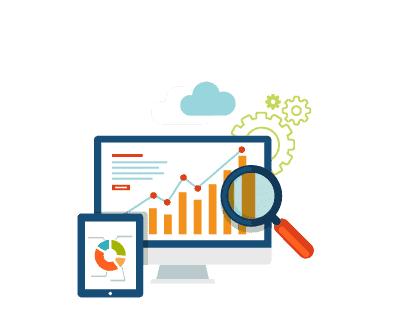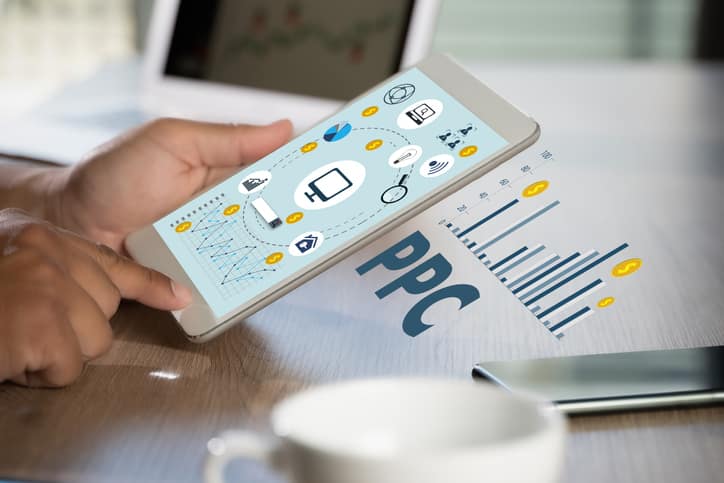Wondering what you should be doing with your pay-per-click (PPC) advertising campaigns right now?
You certainly aren’t alone. We are fielding calls every day from new clients who are struggling to manage the ads they have running on Google, Facebook, and other platforms. They know they can’t afford to stop looking for new customers in the middle of a pandemic and economic downturn. At the same time, those very same economic conditions are making it hard for them to run their ads profitably. On top of it all, they may be worried that things will change going forward and they won’t know how to adapt.
That’s a lot to unpack, but luckily, we have a good starting point for you to work with. Here are seven simple do’s and don’ts for advertising online for your business.
#1 DO Pause or Cancel Underperforming Ad Groups
 Although speculation about the future of the Covid-19 pandemic might shift from day-to-day and week to week, one thing we can all agree on is that it’s affecting businesses, budgets, and the economy as a whole. What this means for business owners right now is that it’s prudent to keep one eye on the bottom line.
Although speculation about the future of the Covid-19 pandemic might shift from day-to-day and week to week, one thing we can all agree on is that it’s affecting businesses, budgets, and the economy as a whole. What this means for business owners right now is that it’s prudent to keep one eye on the bottom line.
Pay-per-click campaigns on Google and Facebook are incredibly easy to set up. For that reason, businesses will put ads in place, tweak their settings for a few weeks or months, and then forget about them altogether. In normal times, this can cause small leakages and expenditures that add up over the course of a quarter or a year. In 2020, underperforming ads represent a drag on your budget that you simply can’t afford.
This is a good time to go through your accounts and find ad groups – or even entire campaigns – that aren’t pulling their weight. By cutting them off you can save money without hurting returns, divert more of your budget to better-performing ads, and/or increase your quality scores to make all your ads more efficient.
Note that we aren’t advising you to throw out the baby with the bathwater (more on this in the next point). However, this is no time to waste money on ads that aren’t leading to new conversions.
#2 DON’T Stop Advertising Altogether
We’ve already previewed this point, but let’s spell it out here: this is not the time to stop advertising unless you’re in a situation where your business isn’t operating normally. You might want to cut back on some expenses and scrutinize your campaigns, but you shouldn’t come to a stop unless it’s absolutely necessary.
Why are we advising clients to keep running ads in a rocky economy? The obvious reason is to avoid a feedback loop. Suppose you become convinced that business is slow and stop advertising. It won’t take long, once customers stop hearing from you, for your prediction to become true. We know a lot of business owners who’ve been pleasantly surprised at the way they’ve been able to rack up new sales lately. You should always work from real data, not pessimistic assumptions.
On a related note, you’ll also want to keep running online ads because many of your competitors probably aren’t. The circular pattern we described above might seem obvious, but you can bet tons of marketers are giving in to fear and simply holding on for dear life. That decreases competition for PPC positions (which lowers costs) and gives you an opportunity to win new customers who might otherwise be harder to reach.
If market conditions for bottom-line realities dictate that you absolutely can’t run ads now, then so be it. Don’t just assume that’s the case, though, until you’ve tested the waters with a targeted strategy.
#3 DO Tighten Up Your Ads and Messages
Now that you understand why you need to keep running the right ads and cut off the rest, it’s time to touch on another important point: the “right” ad campaigns might not be the ones that have performed well in the past.
Whenever economic conditions change, buyer behavior has a tendency to follow. Even the perception that things aren’t going well is enough to affect housing prices and depress the sales of luxury items like expensive cars. The point is that your best-selling products and services from a few months ago might not be the ones buyers are clamoring for now. The marketing messages that used to be winners could require some tweaking.
Many of our clients are finding that, contrary to expectations, new revenue is coming at them quickly. The one caveat is that they’ve had to sell something different, alter their messaging, or deliver in a way they haven’t in the past. In other words, the demand is still there but you might need to adapt.
This is a perfect time to touch base with your customers and figure out what they really want from you. Then, work with your marketing partner to tighten up your ads, messaging, and landing pages. This one simple exercise can boost sales and profit margins like none other during a difficult time.
 #4 DON’T Ignore Web Analytics Related to PPC
#4 DON’T Ignore Web Analytics Related to PPC
The human tendency, in a difficult or unpredictable stretch, is to turn away from facts and “trust our guts.” It makes sense. We are emotional creatures who find familiar patterns comforting.
Natural as it might be, though, this is exactly the wrong move to make at the current point in time. With the profitability of your business hanging on the decisions you make, the last thing you want to do is operate from a hunch. You want to look at the data and make good decisions.
That might not be easy when looking at your pay-per-click campaigns right now, especially if you’re making changes. You may not have enough information to accurately forecast the future. What you can do, though, is take a deep dive into the analytics with your marketing partner. They can help you understand the trends – on your website, in your industry, and across the internet at large – and see what the real story looks like.
Sometimes, your gut feelings will match up with the data in front of you. In other instances, though, web analytics are going to tell a story you might have missed if you didn’t look deeply into the figures. Don’t waste time and money on losing campaigns because you won’t examine the evidence that’s right in front of you.
#5 DO Embrace Retargeting Ad Campaigns
Retargeting ads are something of an enigma for many business owners. Those who use them successfully swear by them. Others who haven’t been able to make them work think they are expensive and annoying.
Regardless of where you fall in that debate, it’s clear that retargeting campaigns can work. And, at a moment when every single lead or sale is precious, giving buyers several chances to decide they want your products and services is a great idea.
The fine print with retargeting always revolves around the fact that you have to watch results in budgets very closely. You don’t want to find yourself spending too much or showing ads too frequently. Doing so can hurt your profitability and leave website visitors with a bad taste in their mouths. If you get professional help setting up your campaigns and adjusting them as you go, however, it shouldn’t be a problem.
You can get away with ignoring tools like retargeting ads when times are good. When every PPC dollar counts though, you need to make the most of conversion opportunities. That means using retargeting to its fullest power.
#6 DON’T Let Your Budgets Get Out of Control
We’ve touched on this idea at several points, but budgets deserve their own mention. After all, if you don’t get this side of the equation right, you’re never going to be profitable no matter how many impressions you generate. You always have to bring in more than you’re spending.
Just as some business owners will be tempted to halt their PPC campaigns altogether because of the tough economic environment, others will be inclined to overspend. They’ll assume (mistakenly) that a huge spike in website visits will necessarily correspond to an increase in sales. That math usually works, but it’s not always proportional.
You have to be careful in the way you spend money in an uncertain economy. It’s good to be on the attack, but not if you’re forced to market to unprofitable customers that eat away at your margins.
The best way to balance a desire for increased marketing exposure with careful budgeting is to get help from a team that knows your business and has extensive PPC experience. That leads us to our final tip…
#7 DO Get Help from the PPC Advertising Experts
We never advise business owners – even the ones that are seasoned online marketers – to manage their own pay-per-click advertising accounts. Why? Because a team like ours has a few advantages over any entrepreneur.
The first is that we have access to sophisticated tools that we can use to audit business websites, analyze keyword search patterns, and even study the competition. We can see things most business owners won’t, particularly as they develop in real-time.
The second is that a team of professionals, like ours, brings a different perspective to PPC advertising. We have seen and managed hundreds of campaigns across many different industries. That gives us a broader base of experience, which is helpful. It also means we aren’t as close to the challenge and won’t be influenced in an emotional way that could lead to mistakes.
And finally, we have the time and expertise to make PPC management a full-time endeavor. The average business owner might have a dozen other things on their mind any given week, but we get paid to make businesses like yours successful. It’s our only job and mission.
If that sounds like the kind of service and assistance you want when sorting out your pay-per-click campaigns, we invite you to contact us to schedule a free consultation today. We will be happy to review your PPC campaigns with you and find a plan and budget that moves your business forward.
Don’t delay – contact us today so we can start working together!
